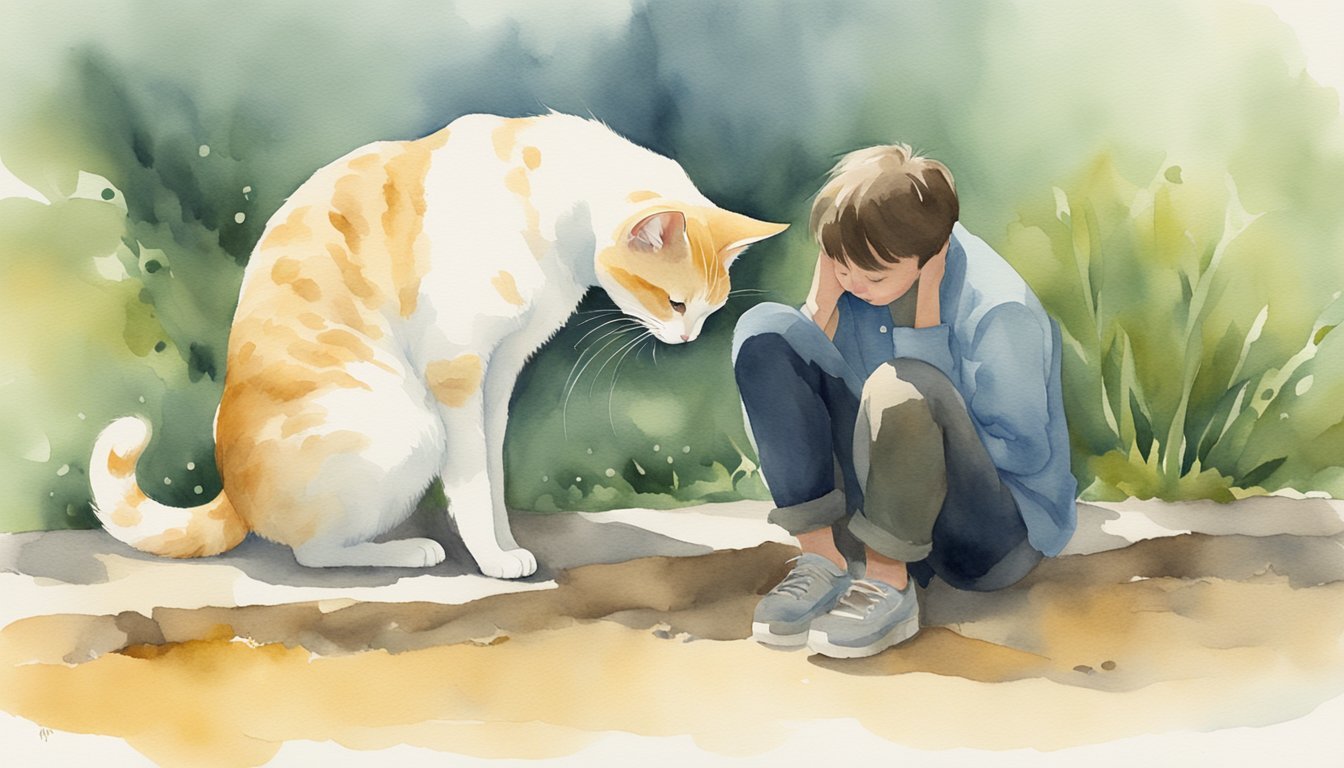Understanding Cat Vomiting
When it comes to our feline friends, vomiting is not uncommon and can stem from various reasons. It’s important to understand when it may be a benign issue or a sign of something more serious.
Distinguishing Between Vomiting, Regurgitation, and Hairballs
Vomiting in cats is the forceful ejection of stomach contents and is an active process involving retching and abdominal contractions. In contrast, regurgitation is often the expulsion of undigested food, which can occur suddenly and without many warning signs, as it involves no abdominal heaving. Regurgitation typically indicates a problem with the esophagus. Another common issue mistaken for vomiting is the presence of hairballs. Hairballs occur as cats groom themselves, swallowing hair that can form into balls within the digestive tract and are usually expelled without much distress.
Common Causes of Vomiting in Cats
The reasons behind why cats vomit can be varied, ranging from relatively harmless to more severe. A cat’s diet, including what she eats and how fast, is a common culprit. Ingesting their food too quickly can lead to vomiting. Cats can also experience vomiting from more concerning issues such as infections, diseases, or ingesting toxins. The occurrence of hairballs can also cause vomiting. Ensuring a proper diet and managing eating habits can help reduce vomiting related to food and hairballs. For detailed insights on why do cats vomit, pet owners can turn to expert resources.
By recognizing the differences between vomiting, regurgitation, and hairballs, and knowing the common causes, cat owners can better address and prevent these issues. If vomiting persists or is accompanied by other symptoms, it is crucial to seek veterinary care.
Health Implications and Treatments

Vomiting in cats can range from isolated incidents related to diet to symptoms of potentially severe health conditions. Understanding the health implications and available treatments is vital for keeping felines healthy.
Recognizing Chronic Conditions
Chronic vomiting in cats may be indicative of underlying health issues such as inflammatory bowel disease, hyperthyroidism, diabetes, parasites, cancer, or chronic kidney disease. These conditions can also lead to weight loss and general malaise. Recognizing these symptoms early plays a crucial role in the management and prognosis of these conditions.
When to Consult a Veterinarian
Owners should consult a veterinarian if their cat’s vomiting is persistent or accompanied by other symptoms like weight loss or behavioral changes. A thorough diagnosis often involves a fecal test, blood work, and possibly imaging to pinpoint the exact cause. Immediate veterinary attention can prevent more severe complications from developing.
Treatment Options and Prevention
Treatment options vary depending on the underlying cause and may include medications, dietary change, and feeding small meals more frequently to ease digestion. For example, inflammatory bowel disease might require a specialized diet along with anti-inflammatory medications. Prevention of chronic conditions can be challenging, but maintaining a healthy diet and regular veterinary check-ups can help manage risks. For insights into potential causes and how to help a cat experiencing vomiting, one may read about cat vomiting and its implications.
Chronic vomiting should not be ignored, as it could indicate serious health issues.)NULL

